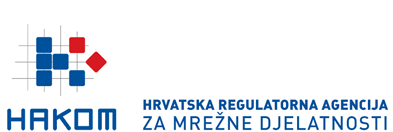BEREC 4th Stakeholder forum Enhancing connectivity and innovation in Europe PRESS RELEASE On the 17th of October, BEREC will hold its 4th Stakeholder forum in Brussels. This major event in the telecoms sector will be focused this year on BEREC work programme for 2017 as well as on the ongoing review of the regulatory framework for electronic communications. In this context, the forum will be the occasion to discuss in particular two important issues: providing connectivity to every European citizen and facilitating the development of the digital economy. Around 220 participants are expected to attend the forum and interact with the speakers, including many actors from the telecoms and digital environments. What solutions to provide connectivity to every citizen?
Providing connectivity to every citizen is a top-priority, reasserted recently by the European Commission. In this regard, investments from the operators as well as innovative solutions to facilitate the roll-outs are key to cope with the rapidly changing end users’ needs. The first roundtable will provide the opportunity to analyse these different solutions and question the role regulation has to play towards them.
A first panel of speakers, moderated by Sharon White, Chief Executive of British regulator Ofcom, will provide their views on these issues:
Empowering the digital economy, which role for investments and regulation?
The development of the digital economy is also subject to intense attention. This fast- changing environment is source of innovation, new actors and new services but also of many regulatory challenges, as the debate on net neutrality has shown. Reversely, the impact of regulation, as well as investments, on this sector and their role as innovation enhancer can be questioned. Together with the main developments in the sector, this issue will be one of the main topics discussed during the second roundtable.
Speakers for this roundtable, moderated by Johannes Gungl, Managing Director of Austrian regulator RTR, will include:
During the different roundtables, the forum will also be the occasion to gather views from the participants on BEREC work programme for 2017 which will focus notably on connectivity challenges, open internet and the framework review.
Wilhelm Eschweiler, 2016 BEREC Chair, and Sébastien Soriano, BEREC Chair for 2017, will give opening remarks. Commissioner Oettinger will close the forum. The event is open to the public and will be webstreamed live on the BEREC website. Everyone is invited to react or ask directly questions to the speakers via Twitter #BERECforum. Link to the agenda: http://berec.europa.eu/eng/events/berec_events_2016/124-4th-berec-stakeholder-forum-meeting stakeholder-forum-meeting # # # For additional information please contact: Croatian Regulatory Authority for Network Industries (HAKOM) Roberta Frangeša Mihanovića 9 10110 Zagreb, Croatia Tel. + 385 (0) 1 700 70 07 Fax + 385 (0)1 700 70 70 Media inquiries can be submitted online using HAKOM’s official website: Registration required.
ABOUT HAKOM: HAKOM (www.hakom.hr) - Croatian Regulatory Authority for Network Industries – ensures preconditions for a fair market competition, stable growth and environment for innovations in the electronic communications and postal services market. HAKOM protects users’ interests and the possibility of choice among various communications and postal services at affordable prices, defines sustainable competitive conditions for operators and service providers under fair conditions for return on investment, and provides support to economic growth, public services and the quality of life in the Republic of Croatia by using modern technologies. HAKOM’ strategic goals are: to promote regulation of the electronic communications and postal services market, to support growth of investments and innovations in the electronic communications and postal services market, to provide efficient use of limited resources, to accelerate the growth of broadband products and services, to provide affordable offers of communications and postal services, to provide protection and informing of users, to build an efficient and comprehensive information system, to define and implement efficient processes, and to acquire multi-disciplinary competencies in market regulation.
|
 |
|
|